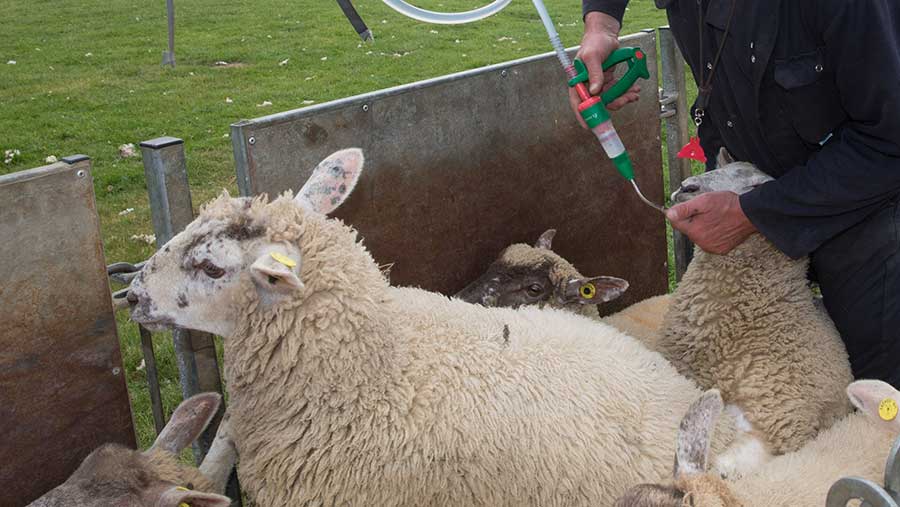Sheep blindness warning issued on overdosing with closantel
 © Tim Scrivener
© Tim Scrivener Sheep farmers are urged to avoid overdosing when using wormers and flukicides containing closantel after reports of blindness in sheep.
Exceeding recommended dosage rates of this antiparasitic ingredient can cause permanent blindness in animals, the Sustainable Control of Parasites in Sheep (Scops) group has warned.
While industry best practice is to “dose to the heaviest animal” to avoid underdosing and promoting anthelmintic resistance, independent sheep adviser Lesley Stubbings warns that a different approach is required with closantel.
See also: Why keeping ewes in tip-top condition can help save on wormers
“Because of the risks posed by overdosing with closantel, Scops urges sheep farmers to split a group if the weight variation is large, grouping sheep into weight bands and altering the dose rate accordingly,” she said.
“That is safer than dosing the heaviest animal and administering too much closantel to small animals.”
Scops added:
- Supaverm, Flukiver, Solantel, Closamectin and Closiver all contain closantel as an active ingredient
- Information on actives and what can be used to treat different parasites can be found online on the Scops website
- The Scops website also has a link to the Veterinary Medicines Directorate product database and the reporting process for adverse reactions.
Ms Stubbings said: “Closantel is an important active in the control of internal parasites. This isn’t a recommendation to avoid the product, just a reminder of the risks of not weighing animals and then giving them too much.”
